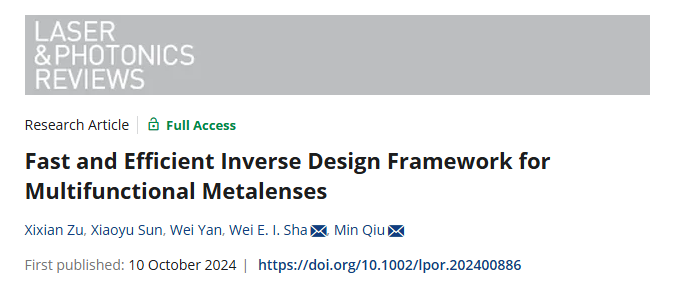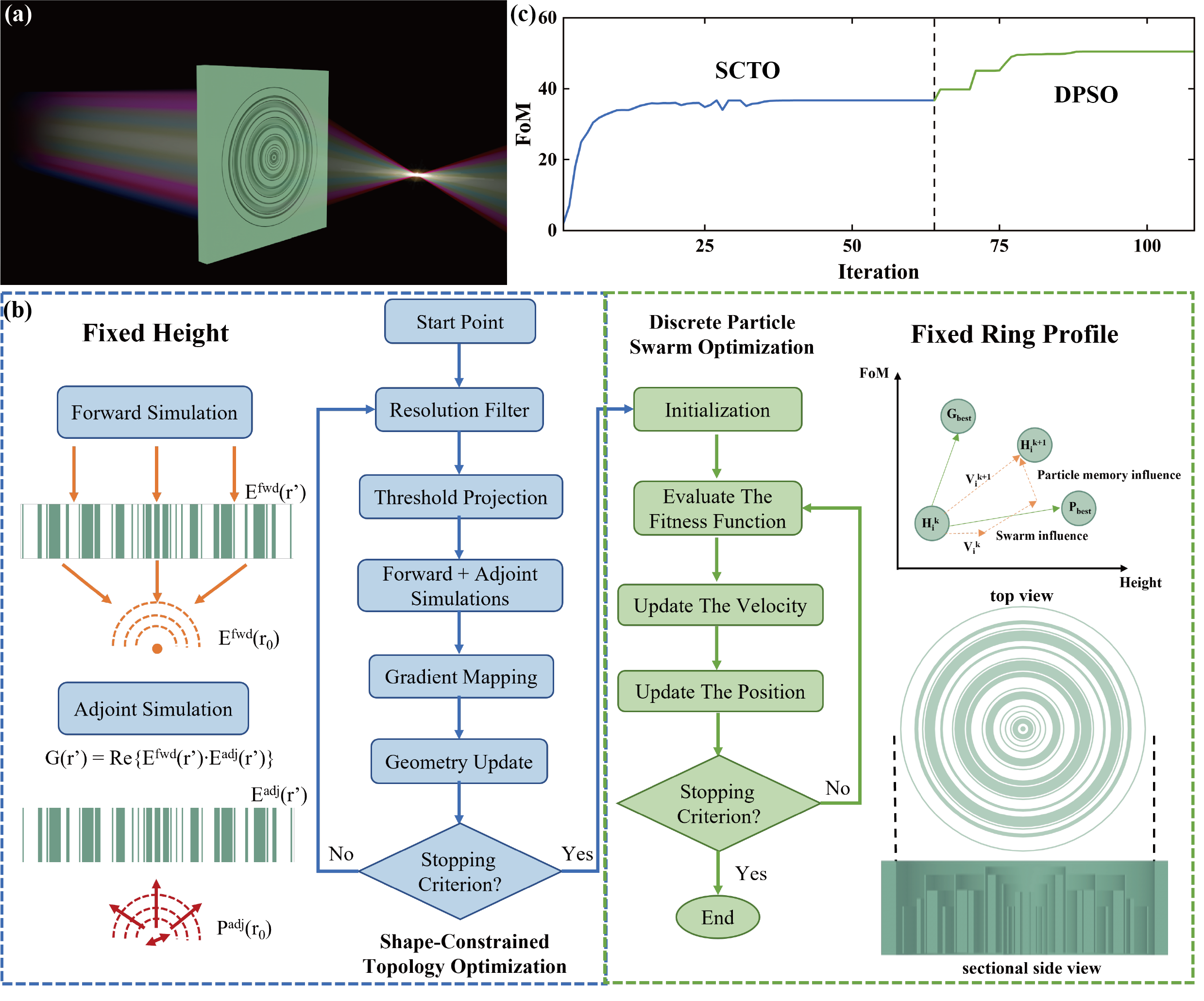In recent years, metalenses based on micro-nano optical structures have garnered significant attention in consumer optoelectronics and industrial applications due to their sleek and compact designs. However, traditional design methodologies for metalenses often rely on assumptions such as discrete phase sampling, local periodicity approximations, and normal incidence responses, which significantly complicate the further optimization of their performance. Although topological optimization methods based on adjoint matrices theoretically enable more efficient design of metalenses, practical applications still confront challenges such as sharp boundary generation during the optimization process and exceeding fabrication process limits. Therefore, designing high-performance and manufacturable metalenses is a challenging task.
Addressing this challenge, Professor Min Qiu's team from the School of Engineering at Westlake University, in collaboration with Professor Wei E. I. Sha's team from Zhejiang University, recently proposed an efficient inverse design framework. This framework allows for the rapid development of polarization-insensitive three-dimensional metalenses that effectively function in both the frequency and spatial domains, featuring simple structures that facilitate processing and manufacturing. This work, titled "Fast and Efficient Inverse Design Framework for Multifunctional Metalenses," has been published in the international journal Laser & Photonics Reviews.


Published in: Laser & Photonics Reviews,
Paper Link:doi: https://doi.org/10.1002/lpor.202400886

